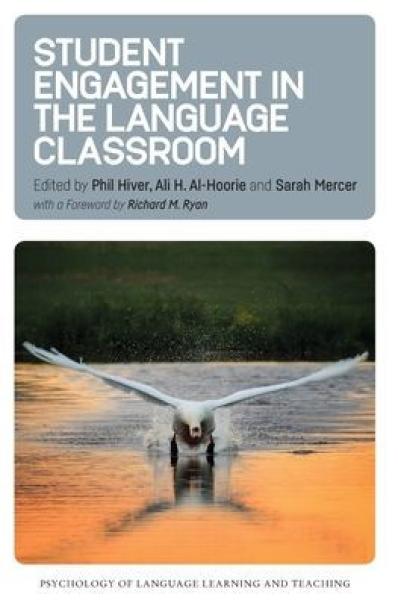Description
Through a mix of conceptual and empirical chapters, this book defines engagement for the field of language learning. It serves as an authoritative guide for anyone wishing to understand the unique insights engagement can give into language learning and teaching, or anyone cond...
Phil Hiver is an Assistant Professor at Florida State University, USA. His research interests include instructed language learning and the role of psycho-social factors in second language teaching and learning. He is the co-editor (with Sarah Mercer and Ali H. Al-Hoorie) of Engagement in the Second Language Classroom (Multilingual Matters, forthcoming).
Ali H. Al-Hoorie is Assistant Professor at the English Language Institute, Jubail Industrial College, Saudi Arabia. His research interests include motivation theory, research methodology, and complexity. His publications have appeared in a number of journals and he is the co-author (with Philip V. Hiver) of the forthcoming book Research Methods for Complexity in Applied Linguistics.
Sarah Mercer is the Head of the ELT Research and Methodology section at the University of Graz, Austria. She is interested in all aspects of language learning psychology, in particular self-related constructs, motivation, affect, agency, mindsets and belief systems. She is co-editor of Positive Psychology in SLA (with Peter MacIntyre and Tammy Gregersen) and Multiple Perspectives of the Self in SLA (with Marion Williams).
For anyone who has ever taught unengaged second language (L2) learners, this volume explores the cognitive, emotional, behavioral, and social aspects of engagement. The authors always have an eye to the classroom, never forgetting a teacher's goal of increasing L2 learner engagement. Whether you're new to the topic or an established researcher, this volume provides something for you.--Shawn Loewen, Michigan State University, USA
In the best of times, when schools are functioning optimally, student engagement is central to quality education. At times of upheaval, when new modes of learning and teaching are being improvised and trialled, it is imperative that we understand how to generate, sustain and measure student engagement. This book could not be more timely and will have enduring value.--Martin Lamb, University of Leeds, UK
This volume provides a clear rationale for why understanding student engagement in the language classroom is important. It unpacks the complexities of what is meant by student engagement, and brings together a rich array of conceptual, empirical and pedagogical perspectives that researchers and teachers will find thought-provoking and illuminating.--Ema Ushioda, University of Warwick, UK
Product Details
- National Book Network Brand
- Dec 31, 2020 Pub Date:
- 1788923596 ISBN-10:
- 9781788923590 ISBN-13:
- 318 Pages
- 9.21 in * 6.14 in * 0.77 in Dimensions:
- 1 lb Weight:




